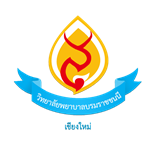The Effectiveness of a Motivational Interviewing Program on Knowledge, Medication Adherence, and the Prevention of disease transmission among Persons with Tuberculosis
Keywords:
Counseling, A Motivational Interviewing Program, Medication Adherence, Prevention the Transmission, Pulmonary TuberculosisAbstract
The objective of this quasi experimental was to examine the effectiveness of a motivational interviewing program on knowledge, medication adherence to, and the prevention of disease transmission among persons with tuberculosis. Participants were 60 people with tuberculosis who visited the tuberculosis clinic, Sukhothai Hospital. All participants were randomly assigned to the intervention group and the control group, 30 participants in each group. The intervention group received the motivational interviewing program about 6 weeks, whereas the control group received the regular treatment routine. The research tool was the motivational interviewing program. The data collection instruments were the medication adherence assessment tool, the knowledge assessment tool, and the tool for assessing the transmission prevention among persons with tuberculosis. Data were analyzed using descriptive statistics (frequencies and percentages). The paired t-test and the independent t-test were used to compare the pretest and posttest average scores of outcomes between the experimental group and the control group.
The results revealed that after receiving a motivational interviewing program, the mean scores of knowledge, medication adherence, and the prevention of disease transmission in the intervention group had a significantly higher than before enrolling the program (p-value <0.001). When compared to the control group, the mean scores of knowledge, medication adherence, and preventing the transmission in the intervention group were also significant higher than higher than persons in the control group that receiving the regular treatment routine (p-value =0.001, 0.05, and 0.001, respectively). This research indicated that a motivational interviewing program can increase knowledge, medication adherence, and preventing the transmission among those who have tuberculosis. Nurses or other health care providers can apply or develop this program to others infectious disease persons in order to changing health behaviors and preventing the transmission of the diseases.
References
กรมสุขภาพจิต กระทรวงสาธารณสุข (2546). คู่มือการให้การปรึกษาขั้นพื้นฐาน.องค์การสงเคราะห์ทหารผ่านศึก.
กิรณา อรุณแสงสด วันทนา มณีศรีวงศ์กูล และอรสา พันธ์ภักดี.(2557). ผลของโปรแกรมการสัมภาษณ์ เพื่อเสริมสร้างแรงจูงใจแบบสั้นต่อความรู้ แรงจูงใจ และความต่อเนื่องสม่ำเสมอในการรับประทานยาของผู้ป่วยโรคความดันโลหิตสูง. วารสารพยาบาลสาธารณสุข, 8(3),129-144.
ญาดา บุตรปัญญา เพ็ญพักตร์ อุทิศ และสุนิศา สุขตระกูล. (2559). ผลของโปรแกรมเสริมสร้างแรงจูงใจอย่างต่อเนื่องทางโทรศัพท์ ต่อพฤติกรรมการดื่มสุราของผู้ติดสุรา. วารสารพยาบาลทหารบก, 17(3), 123-131.
ณฐกร จันทนะ วันทนา มณีศรีวงศ์กุล และพรรณวดี พุธวัฒนะ (2560). ปัจจัยที่มีความสัมพันธ์กับความสม่ำเสมอในการรับประทานยารักษาวัณโรคดื้อยาหลายขนาน, รามาธิบดีพยาบาลสาร, 25(3), 296-309.
เทิดศักดิ์ เดชคง. (2563). ที่ศึกษาผลของโปรแกรมการสนทนาแบบสร้างแรงจูงใจต่อการควบคุมระดับน้ำตาลในเลือดสำหรับผู้ป่วยเบาหวานชนิดที่ 2. วารสารสถาบันบำราศนราดูร, 14(3), 134-145.
บุษบา ประสมผล (2553). ประสิทธิภาพของโปรแกรมการให้การปรึกษาโดยการสัมภาษณ์เพื่อเสริมสร้างแรงจูงใจแบบสั้นต่อความรู้เกี่ยวกับวัณโรคและความต่อเนื่องสม่ำเสมอในการรับประทานยาของผู้ป่วยวัณโรคปอด.วิทยานิพนธ์พยาบาลศาสตรมหาบัณฑิต (การพยาบาลเวชปฏิบัติชุมชน) บัณฑิตวิทยาลัย มหาวิทยาลัยมหิดล.
วิชรา เสวกพรหม. (2557). ผลของโปรแกรมส่งเสริมการจัดการตนเองต่อความสม่ำเสมอในการรับประทานยาและการป้อกันการแพร่กระจายเชื้อของผู้ติดเชื้อเอชไอวี/เอดส์ที่เป็นวัณโรคร่วม. วิทยานิพนธ์พยาบาลศาสตรมหาบัณฑิต (การพยาบาลผู้ใหญ่). มหาวิทยาลัยสงขลานครินทร์.
สมัญญา มุขอาษา. (2558). การศึกษาผลของโปรแกรมเสริมสร้างสุขภาพโดยการประยุกต์ทฤษฎีการสร้างพลังอำนาจในผู้ป่วยวัณโรคปอดเสมหะบวกรายใหม่. วิทยานิพนธ์สาธารณสุขศาสตรมหาบัณฑิต คณะสาธารณสุขศาสตร์ มหาวิทยาลัยธรรมศาสตร์.
สถิติรายงานประจำปี. (2563). รายงานประจำปี งานการป้องกันควบคุมวัณโรค โรงพยาบาลสุโขทัย กระทรวงสาธารณสุข. สุโขทัย: โรงพยาบาลสุโขทัย กระทรวงสาธารณสุข.
Bloom, B.S. (1971). Handbook on Formative and Summative Evaluation of Student Learning. New York: Mc Graw- Hill Book Company.
Cohen.J. (1988). Statistical power analysis for the behavioral science (2nd ed). Hillsdale, NJ: Lawrence Erlbaum Associates.
Miller,W.&Rollnick,S.(1991). Motivational interviewing: Preparing people to change addictive behavior. New York: Guilford Press.
World Health Organization. (2015). Global Tuberculosis report 2015. France World: Health Organization.
Zomahoun, H., Guénette, L., Grégoire, J. P., Lauzier, S., Lawani, A. M., Ferdynus, C., Huiart, L., & Moisan, J. (2017). Effectiveness of motivational interviewing interventions on medication adherence in adults with chronic diseases: A systematic review and meta-analysis. International Journal of Epidemiology, 46(2), 589–602.

Downloads
Published
How to Cite
Issue
Section
License
1. บทความหรือข้อคิดเห็นใด ๆ ที่ปรากฏในวารสารวิจัยการพยาบาลและการสาธารณสุข ที่เป็นวรรณกรรมของผู้เขียน บรรณาธิการไม่จำเป็นต้องเห็นด้วย
2. บทความที่ได้รับการตีพิมพ์ถือเป็นลิขสิทธิ์ของ วารสารวิจัยการพยาบาลและการสาธารณสุข








